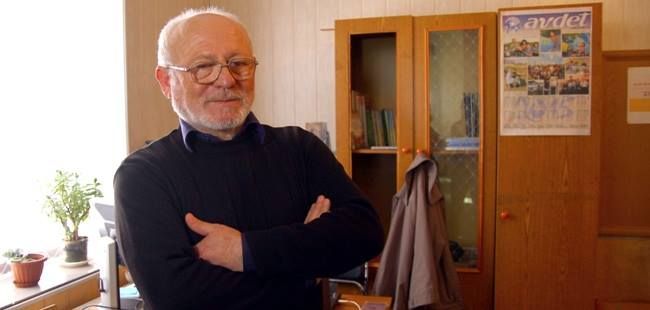In Soviet times, Western analysts often said that Russians in the USSR were subjected to Sovietization while non-Russians were subject to Sovietization plus Russianization. But now, the situation in occupied Crimea over the past year suggests that Russianization under Putin now has not only a linguistic but also an ideological dimension.
In an article on Slon.ru
, Sergey Mokrushin, who identifies himself as an independent journalist, says that “Crimea’s information space has changed over the past year to the point of being unrecognizable” and that the future of media there in terms of both linguistic diversity and freedom is bleak.
Not only have many Crimean Tatar and Ukrainian language outlets been closed and their journalists pushed out, but more are likely to be next week when on April 1 Russian media law kicks in with full force on the occupied peninsula. Already, Crimea has slipped 22 places to 148th (the same as Russia) according to the rating of Reporters sans Frontiers.
The Russian occupation of Crimea began with the seizure of the Crimea State Radio and Television Company
and the Radio and Television Transmission Center by armed men without any identifying marks. Transmission of the Black Sea TV and radio company was blocked, as were all of Ukraine-wide channels. Their slots were handed over to Russian Federation channels.
Three months later, local cable operators were forced to drop all Ukrainian channels, and now, Mokrushin says, “those who want to watch them can do so only via the Internet or satellite.”
These institutional changes were accompanied by attacks on journalists by members of the pro-Moscow popular militia. During the first three months of the occupation, more than 100 such attacks were registered. Many journalists fled, although a few attempted to bring their writing into line with what the authorities want and have found work in pro-Moscow outlets.
As a result and clearly by the design of the authorities, people in Crimea “do not know about the numerous searches and arrests and political persecution of those who think differently” there – and neither do people in Russia itself because no journalists from Crimea are able to report about these things.
Instead, Crimean viewers are offered “bravura but all the same extremely doubtful materials” including reports about an economic boom there, “happy Crimeans,” and the doubling of the numbers of tourists, reports that even official statistics do not confirm.
The only channel which still operates according to normal journalistic standards is the Crimean Tatar-language ATR. Even it has pulled its punches on some of the most sensitive issues. But in three days, it will be shut down because it has tried and failed to secure official registration, a disaster not only for the Crimean Tatars but for Crimeans in general.
The occupation authorities have been equally harsh in dealing with the Internet. They have seized the offices of the Information Press Center
and the Center for Journalistic Investigations, two places that had been centers of journalistic excellence. And they have raided the homes of journalists who had been working there.
The same thing has happened with other Internet publications that have been sent a clear signal to adapt or shut down. Several have tried to adapt and hold on, but they are being pushed out as well. One that is likely to be closed soon is QHA, the Crimean News Agency, something that will hurt not only the Crimean Tatar audience but the Ukrainian and Russian one as well.
The occupation authorities have also redistributed radio frequencies in such a way that “not one radio station broadcasting [in Crimea] before 2014 is still working. And they are in the process of shuttering both the Russian-language paper “Sobytiya” and the Crimean Tatar-language “Avdet.”




